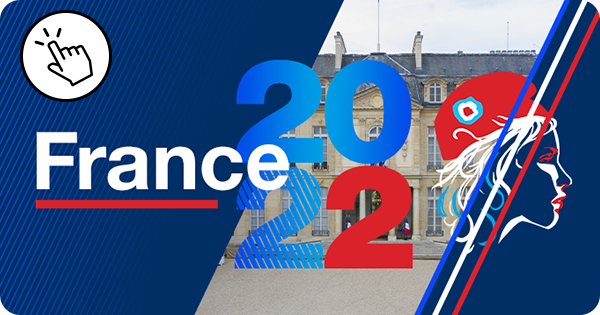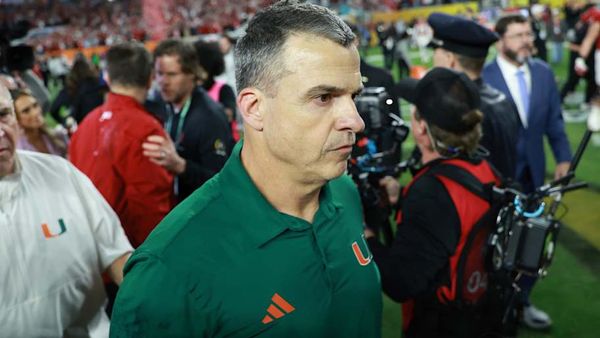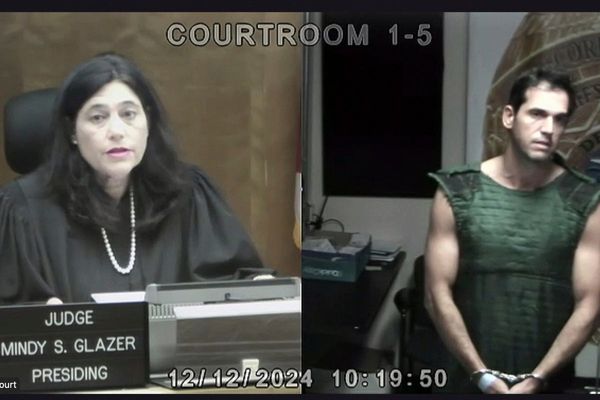Presidential campaigns offer an abundance of catch phrases, whether slogans finessed by a candidate's team to deliver maximum impact or coined spontaneously on the trail. The proclamations of presidential hopefuls bring texture to an election race and come to define a campaign – for a news cycle or forever in the history books. FRANCE 24 breaks through the language barrier to bring you the buzzwords of the 2022 French presidential race. In the spotlight: "Vote utile", the tactical (literally, "useful") vote.
The topic materialises with every French presidential vote and yet nevertheless elicits a frenzy of pearl-clutching from the offended adversaries: the vote utile, the appeal to cast a ballot tactically. The idea is a compromise: Go for a tolerable candidate with the best chance at the top prize, rather than the ideal pick in a perfect world. Better to win vaguely contented than to lose on stubborn principle in a blaze of glory.
But the prospect of such tactical voting is so frowned upon in France, particularly on the left, that the candidate with the most to gain from it in the 2022 presidential race, far-leftist Jean-Luc Mélenchon, has dodged that loaded phrase. Instead, he favours "le vote efficace", the efficient vote.
"I don't like the term 'useful vote'," Mélenchon demurred in a February tweet thanking former Socialist presidential candidate Ségolène Royal for controversially endorsing the La France Insoumise party candidate as the only sound tactical choice on the left. "The useless vote doesn't exist. Everyone acts on conviction and submits a ballot with the country's best interest in mind," said the 70-year-old.
Mélenchon continues to climb in the polls ahead of the French presidential election's first round on Sunday, leaving behind an idling pack of left-wing rivals. With many voters still undecided and up to 30 percent considering abstaining, Mélenchon is seeking to better his 2017 performance, when a late surge left him just 600,000 votes shy of advancing to the run-off.
But the leftist adversaries that Mélenchon is offending – namely Socialist candidate Anne Hidalgo, French Communist Party (PCF) candidate Fabien Roussel and Greens candidate Yannick Jadot – are pointedly not falling for his semantic antics. Mélenchon does want a tactical vote, the rivals say, and they won't stand for it. Jadot last week deemed "a useful or efficient vote" a "mirage", while Hidalgo on Sunday urged lapsed Socialists to "come back to your first family", even as she polls at under 2 percent.
Where does the term come from?
Candidates' entreaties to vote tactically have been a mainstay of French politics at least since the 2002 presidential election's historic shocker: Back then, for the very first time, a far-right candidate, the grizzled rabble-rouser Jean-Marie Le Pen, insinuated himself into the presidential run-off with less than 17 percent of the vote, beating out the much-heralded Socialist Party candidate Lionel Jospin, much to the surprise of all concerned.
>> Flashback: Jean-Marie Le Pen's 2002 'thunderclap' shocker
In 2002, the toxic alchemy of record low voter turnout, a record high number of candidates lowering the vote-count bar needed to advance, a glut of competing leftists, and plain old overconfidence proved politically deadly. The left wing was eliminated in the first round, leftist voters held their noses to re-elect the conservative Jacques Chirac over Le Pen in a run-off landslide, the defeated Socialist Jospin quit politics forever, and the general sentiment was. "never again".
In a 2019 study, the independent French media watchdog Acrimed found that the press and wire services had only used the term "useful vote" 39 times in the eight months running up to that fateful 2002 presidential vote. But their use of the term skyrocketed in the races to follow: 1,075 times in 2007, 1,068 in 2012 and, finally, 1,503 in 2017, when Marine Le Pen followed in her father's footsteps and scored a place for the far-right in the final.
Taboo remains
Be it a design flaw of France's two-round electoral system or its cathartic saving grace, the notion of voting tactically on the first Sunday of a presidential election remains somewhat taboo.
When Charles de Gaulle, a founding father of France's Fifth Republic and its first president, helped design the nation's modern system for voting by universal suffrage after 1958, he imbued it with his own mistrust of political parties and sought to curb their influence.
The upshot has been a presidential first-round ballot brimming with options of every political stripe, a wide palette of candidates who hardly need to engage in compromise to stand for France's top job. Indeed, the left-wing choices on offer habitually include a couple of revolutionaries – this time, there are two candidates from the Trotskyist school alone, Philippe Poutou and Nathalie Artaud.
Spoiled for choice, a common French voter refrain is that the first round is for voting with one's heart while the second is for voting with one's head. Voters are free to choose their (more or less) ideal candidate at the ballot box on the election's first Sunday. Pragmatism's place is in the resulting run-off two weekends later – when many are reduced to choosing between the lesser of two evils.
"The presidential election is two rounds. There is one where we vote for our ideas. It's a vote of conviction," PCF candidate Roussel told RTL radio on Friday. "Otherwise, we do it like they do in the United States: Republican, Democrat, one round, two candidates and we speak no more of it. There have always been five or six candidates on the right and five or six candidates on the left. The French love to vote for the one that they feel the closest to in the first round. Leave them to it," the Communist chief implored.
Roussel can take solace in the knowledge his party faithful won't begrudge him that stance. He won his party's leadership in 2018 on a specific pledge to put the French Communist Party back on the presidential ballot in 2022. The party regretted having declined to field a candidate under its own banner during the last two elections, backing Mélenchon instead. In the end, no matter how close the far-leftist had come to the ultimate prize in 2017, it wasn't worth it.
Le Pen turns the tables
With two high-polling far-right candidates on the presidential ballot in 2022, Marine Le Pen has, too, been appealing for a tactical vote in her favour at the expense of rival newcomer Éric Zemmour. Closing the gap on the centrist incumbent Emmanuel Macron down the stretch – and finally poised to profit from the tactical voting first brandished to keep her father from winning the Élysée Palace – she, however, doesn't shy away from the term. Keen to prevent Zemmour from splitting the far-right vote and keeping her from a run-off rematch with Macron, Le Pen used a campaign ad to command of voters "neither abstention nor dispersion, but a useful vote. Very useful".
To explore FRANCE 24's other campaign buzzwords, click here.








